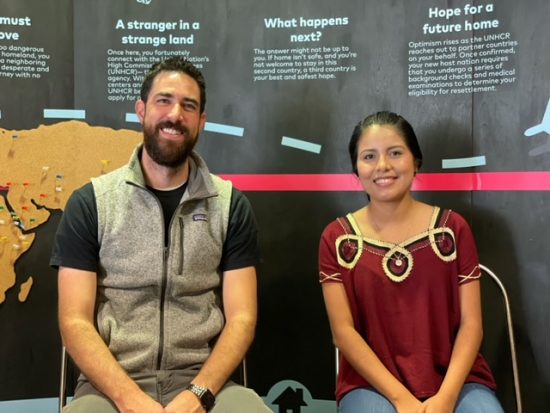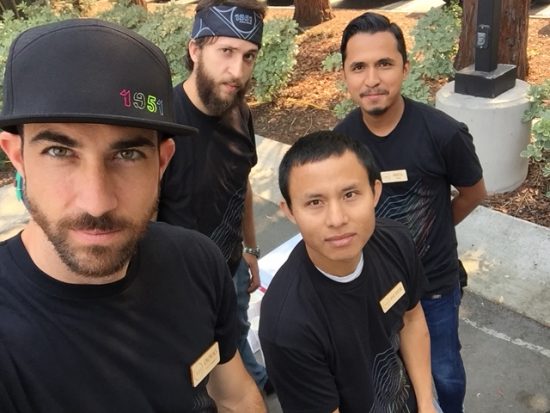
Oakland, Calif.-based nonprofit 1951 Coffee provides English classes, employment, and more to transitioning refugees in America.
BY TANYA NANETTI
SPECIAL TO BARISTA MAGAZINE ONLINE
Photos courtesy of 1951 Coffee
As specialty-coffee roasters continue to set the bar for sustainability, traceability, and a fair supply chain, many look to add to the high moral ground that the industry has already established.
One example of such a company is 1951 Coffee in Oakland, Calif.

The 1951 mission
Doug Hewitt founded 1951 Coffee in 2015. The nonprofit specialty-coffee organization promotes the well-being of the refugee community in the United States by providing job training and employment to refugees, asylees, and special immigrant visa holders; simultaneously, 1951 also educates the surrounding community about refugee life and issues.
The name comes from The UN Refugee Agency’s (UNHCR for short) 1951 Refugee Convention, which first defined and created guidelines for refugee protection. And that’s exactly what 1951 Coffee is about—working with refugees and providing guidance to help them overcome the unique barriers they face in seeking and sustaining employment.
But how did 1951 come to life? “I started 1951 Coffee after working at the International Rescue Committee helping refugees find jobs in the United States and resettle here,” Doug says.
“The U.S. government expects a refugee to be economically self-sufficient in just six months after arrival,” he continues. “This is largely contingent on finding employment. However, most employers are looking for employees that are very easy to onboard and have lots of experience. This made finding a job and being self-sufficient in six months nearly impossible for someone new to the country.”
Doug knew that something needed to “exist in the space between the services refugee resettlement agencies could offer and the industries they wanted to connect refugees to for employment.”

Using coffee to employ refugees
Doug thus utilized his knowledge of the San Francisco Bay Area to recognize how big the coffee industry was there, and how applicable coffee skills could be for refugees. He also knew the environment of the field was generally good, and offered a lot of room for growth.
“People of all walks of life pass through cafés on any given day,” he says. “This means working in the coffee industry allows the newest members of our community to be at the center of American life and not isolated on the margins.”
1951 started in 2016 and has since trained more than 230 baristas, with more than 40 hiring partners within the coffee industry.
How it works
Through 1951’s Barista Training Program, employment at their own café space, and ongoing job placement support, 1951 breaks the barriers refugees and asylees face in pursuing the financial stability needed to have self-determination.
Program participants learn not only how to make quality coffee, but also vocational English skills, customer service standards, and U.S. workplace expectations and responsibilities. Plus, they receive ongoing support as they embark on their new career path.

No single origin
And there’s more. Last September, 1951 filmmakers and Home Storytellers co-founders Francisco and Alejandra Alcala released a short documentary called No Single Origin, which follows Doug Hewitt as he learns about the complexity of refugee resettlement. But the documentary tells not only his story: Meg Karki, Batool Rawoas, and Liebe Mehretab, three graduates from 1951 Coffee’s Barista Training Program, share their experiences, revealing their struggles after resettlement.
The goal of the documentary is to reveal the challenges of refugee resettlement in the U.S., as well as shine a light on how community-driven education and integration can significantly increase success of resettlement.
One of the most important goals of 1951 is that everyone can help in supporting its mission by simply watching the documentary on demand, or hosting a private or public screening. Check out the video here, and be sure to visit the café next time you’re in the Berkeley area.

